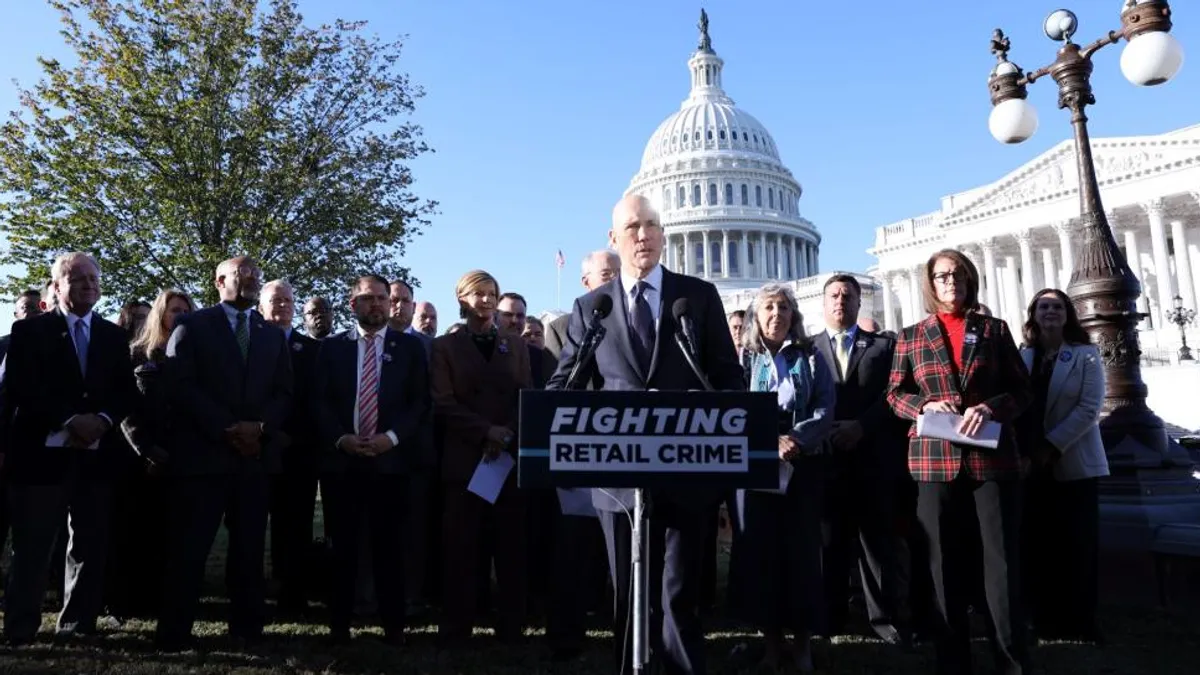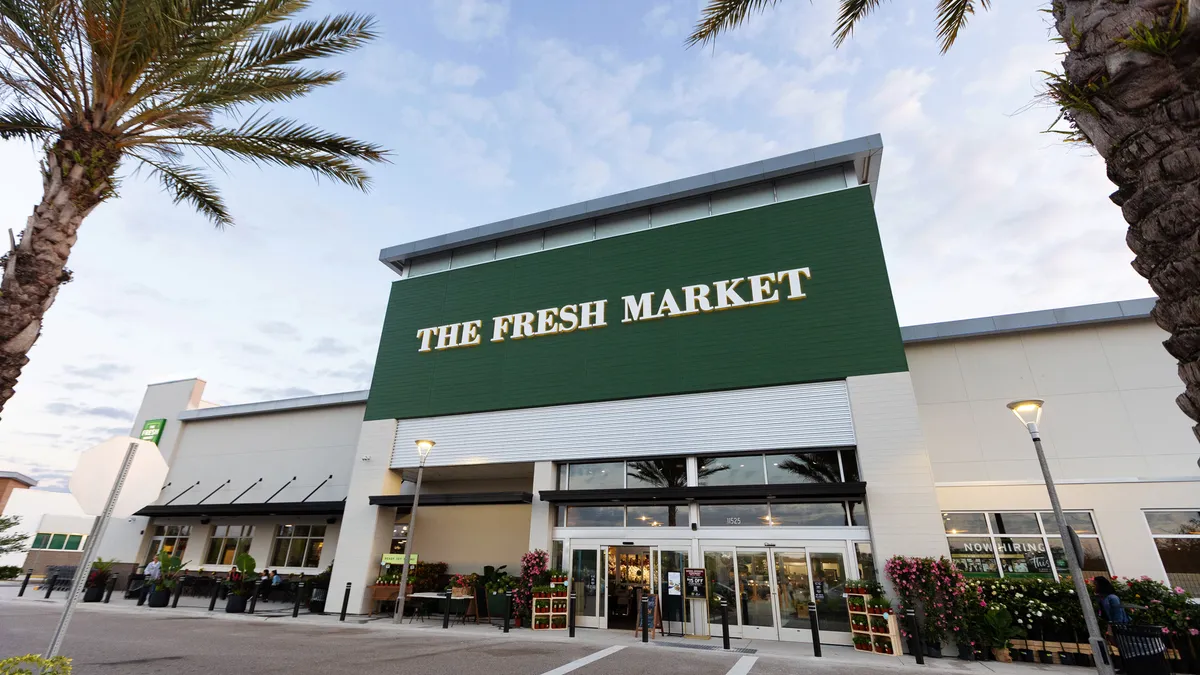The National Retail Federation on Friday said it has edited a retail crime report released in April, and has withdrawn a claim regarding organized retail crime following an analysis from sister publication Retail Dive.
The group had cited an estimate of the financial impact of organized retail crime that turned out to be a six-year-old survey of aggregate inventory losses for all reasons, including those unrelated to theft. On Friday, after the publication of Retail Dive’s story, the group said it had updated its report. It no longer includes any estimate of organized retail crime's overall impact in dollar terms, the assertion that nearly half of shrink is attributable to ORC, or any mention of the National Coalition of Law Enforcement.
In the original report, dedicated to organized retail crime and conducted with risk, compliance, investigations and monitoring firm K2 Integrity, the group had said that shrink was $94.5 billion in 2021, “nearly half of which was attributable to ORC, according to NRF survey data and research by the National Coalition of Law Enforcement.”
This estimate from the National Coalition of Law Enforcement and Retail, also known as CLEAR, was derived from U.S. Senate testimony two years ago from that group’s president, Brendan Dugan. “CLEAR estimates that organized retail crime accounts for $45 billion in annual losses for retailers,” he told the Senate’s Committee on the Judiciary in November 2021.
However, in an email to Retail Dive, Dugan said that was from the NRF’s 2016 report on total shrink, or unaccounted-for inventory. The NRF’s annual shrink reports include estimations of inventory loss from organized retail crime and other types of theft, but also from process errors and other reasons for lost inventory that have nothing to do with crime.
The NRF previously said it wasn’t aware that CLEAR’s estimate was from its own research on shrink and that it would look into that section of its crime report. On Friday, the group said the report had been updated.
The number never gelled with NRF’s previous estimates of shrink and theft. While organized retail crime would account for half of shrink using Dugan’s number, NRF’s own reports have indicated that about two-thirds of shrink are due to various types of theft. Those include employee (or internal theft), shoplifting, burglary, break-ins, robbery, credit card fraud and organized retail crime. NRF’s findings make Dugan’s number infeasible: According to its most recent report on shrink, about 29% is lost because employees steal merchandise or money and another 34% is lost to process errors or for unknown or other reasons. The remaining 36% is from external theft, of which organized retail crime is a subset.
Trevor Wagener, the chief economist at the Computer & Communications Industry Association, who has conducted research on these issues, found that using the NRF’s methodology ORC’s contribution to retail shrink is probably closer to 5%, in contrast to the 50% that results from using Dugan’s number. However, calculating the scope of ORC is an onerous task, he told Retail Dive.
“If anything ORC is significantly more difficult to assess accurately, because you have the small sample size problem of a subcategory, as well as inherent issues with imprecise/fuzzy distinctions between ORC and shoplifting, as well as core epistemological uncertainty,” he said by email. “Often it's simply not certain whether a seemingly missing item was stolen externally, stolen internally, or just never delivered or miscounted upon delivery.”
Mary McGinty, NRF VP of communications and public affairs, who notified Retail Dive of the new version of the group’s crime report, also noted the difficulty of assessing the issue.
“The lack of conclusive data to capture the scale of retail theft is a problem that virtually everyone involved readily acknowledges,” she said. “But other empirical data shows the problem of retail theft is real and growing.”
The NRF didn't immediately return questions about whether it plans to publicly indicate that the report has been edited due to a problem with the ORC estimate.
In his communications with Retail Dive, Dugan offered an updated estimate of the inventory loss from organized retail crime, citing 2021 research from the Retail Industry Leaders Association estimating that as much as $68.9 billion worth of products were stolen from retailers in 2019. However, according to RILA spokesperson Jason Brewer, that dollar figure reflects all theft, not just organized retail crime.















